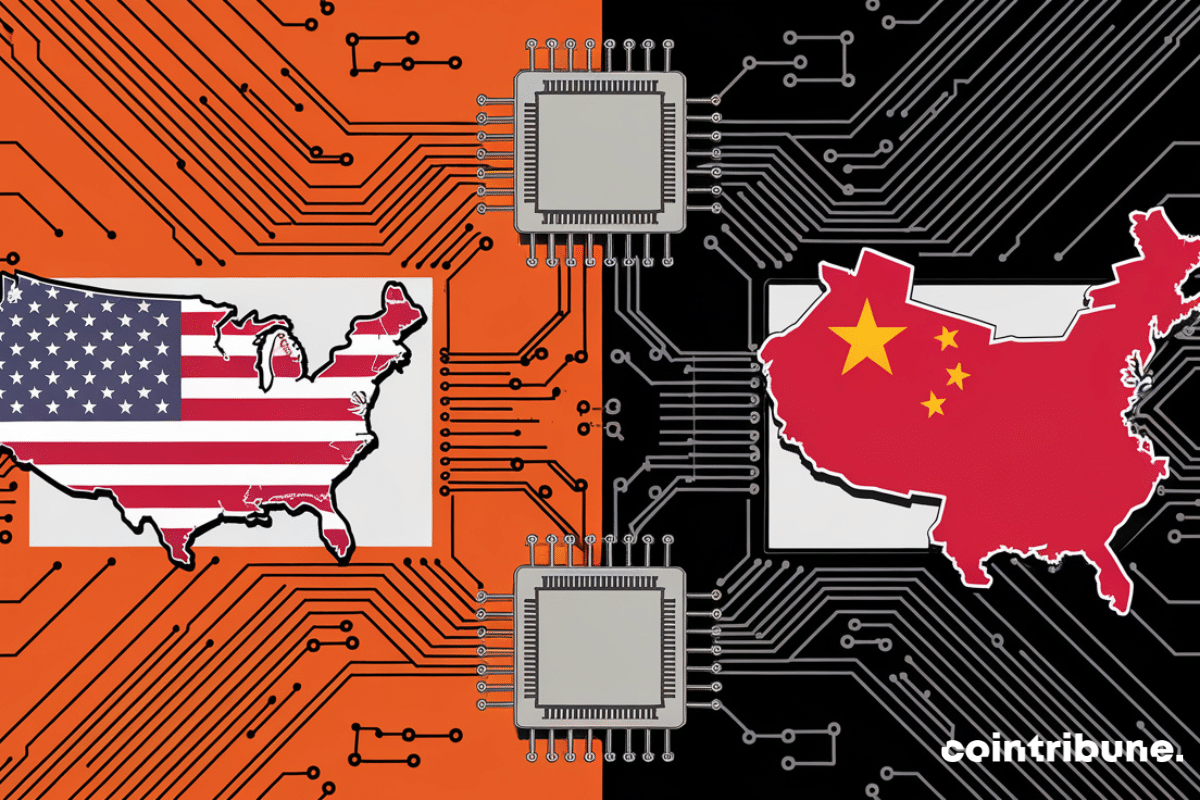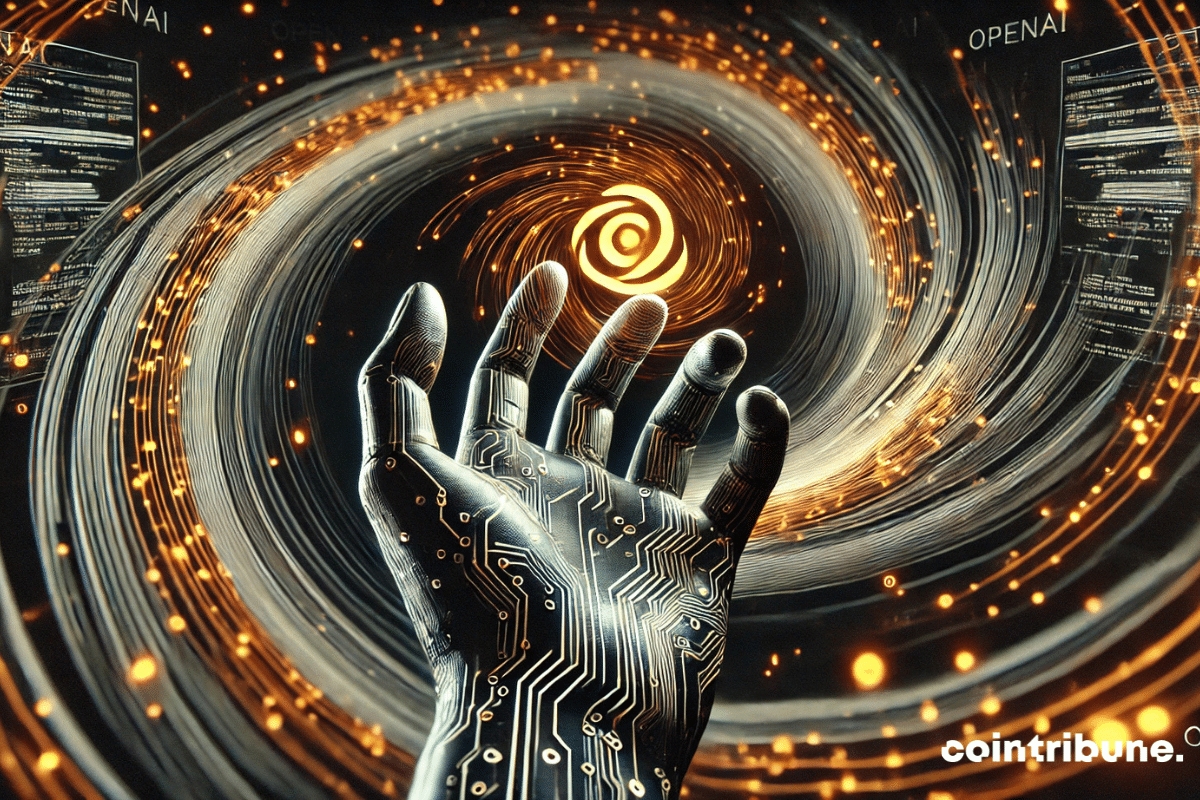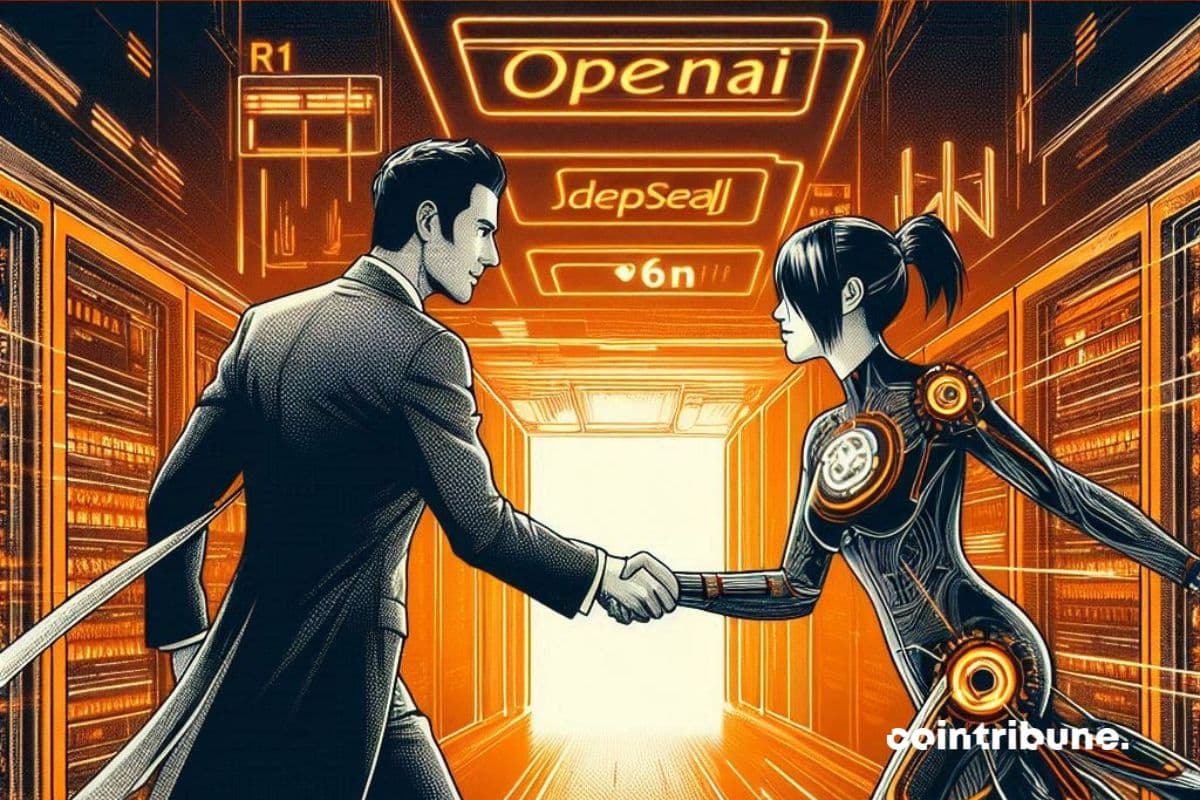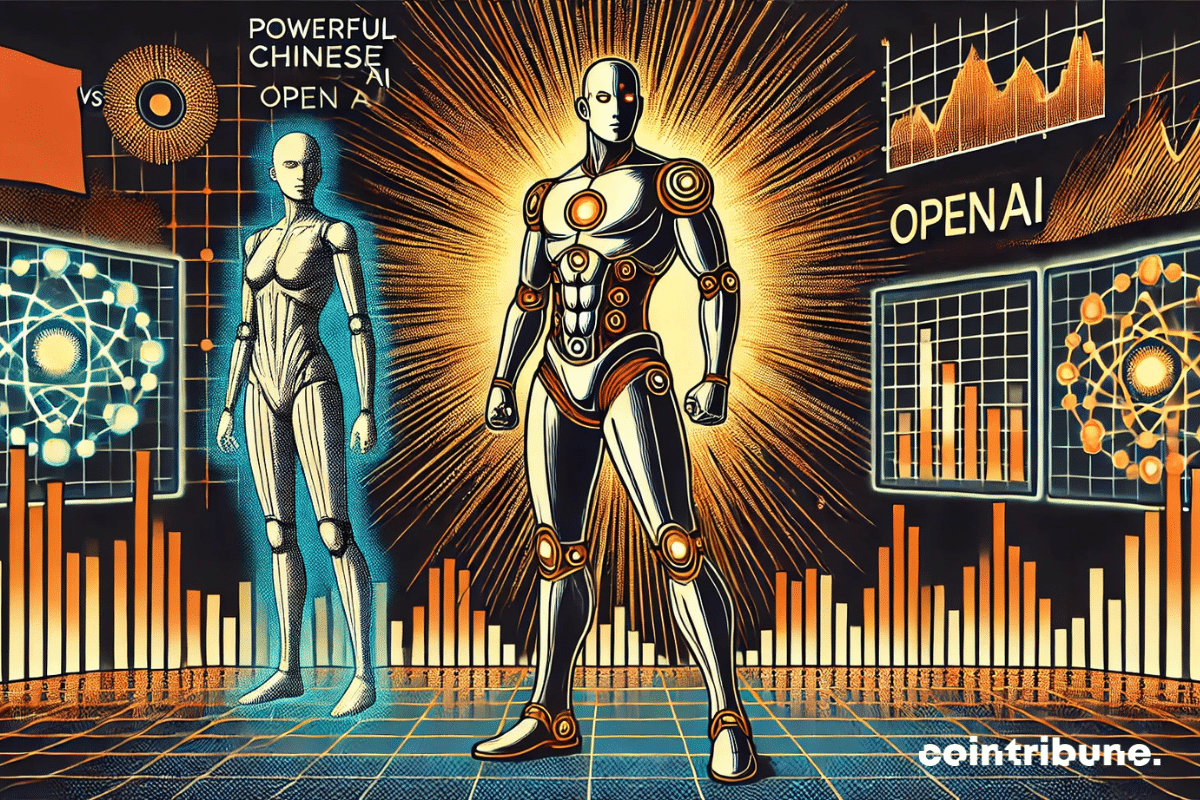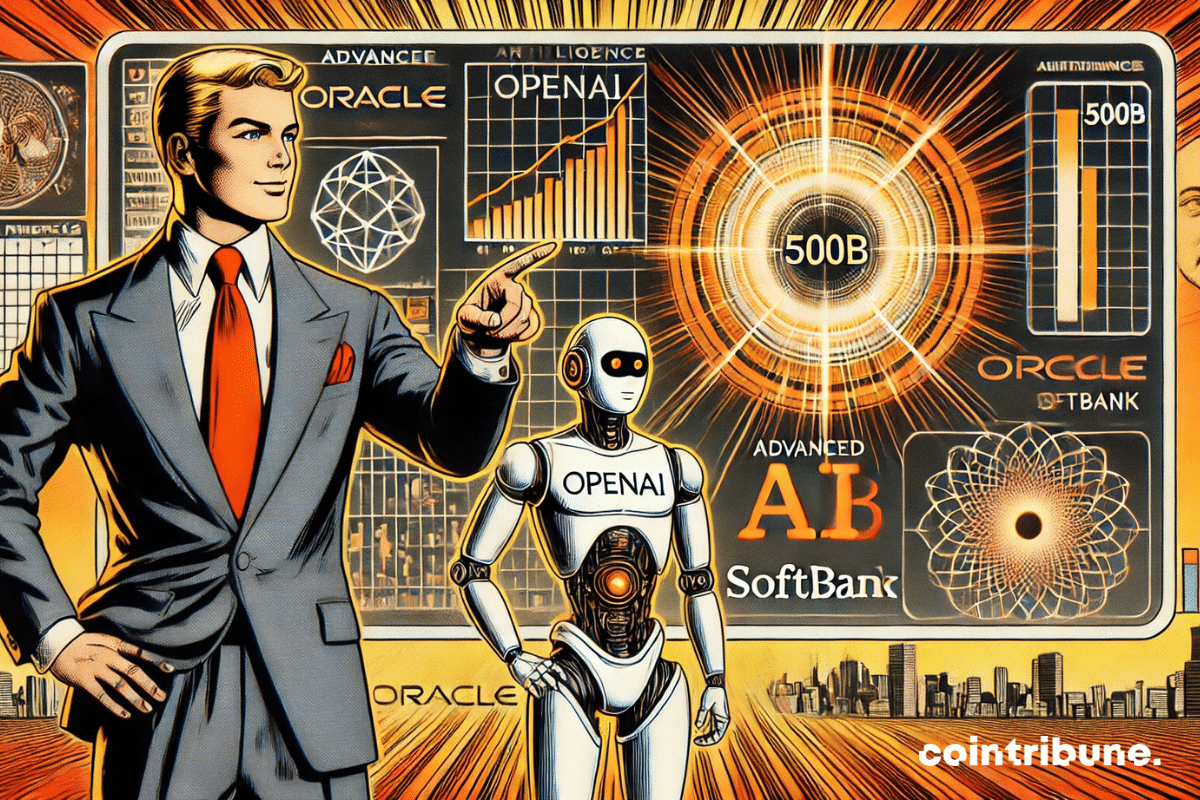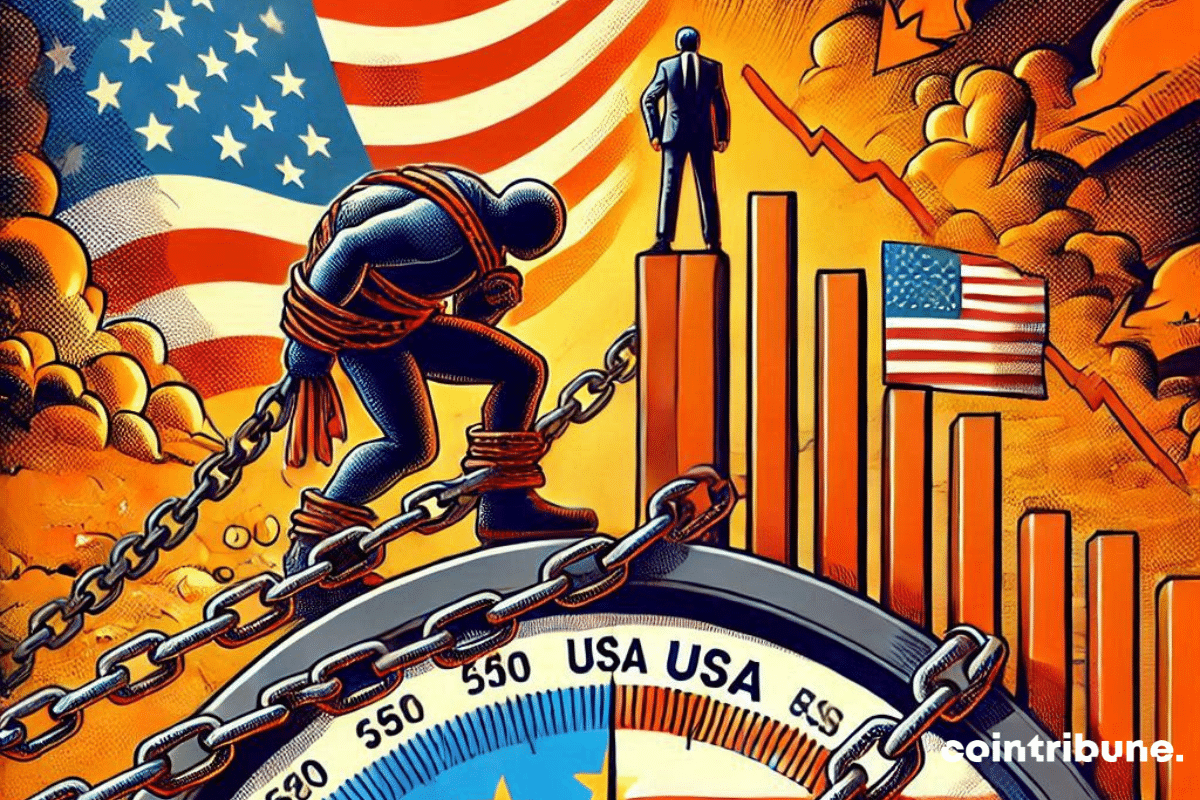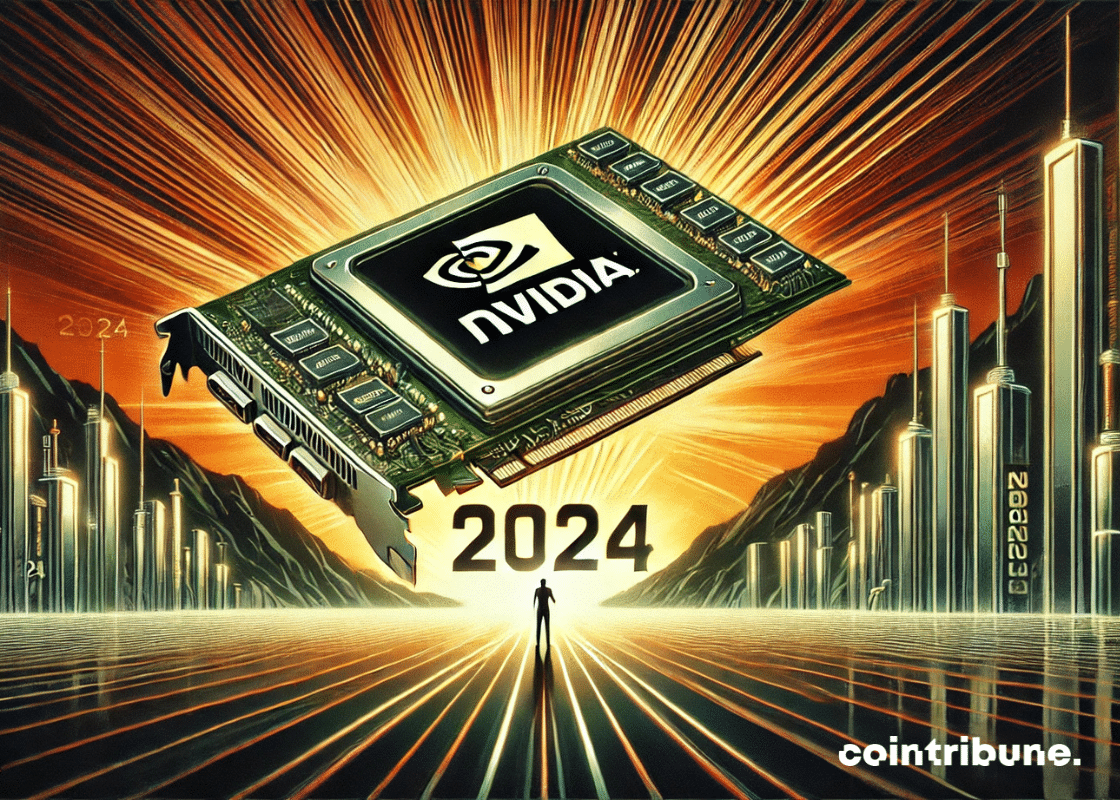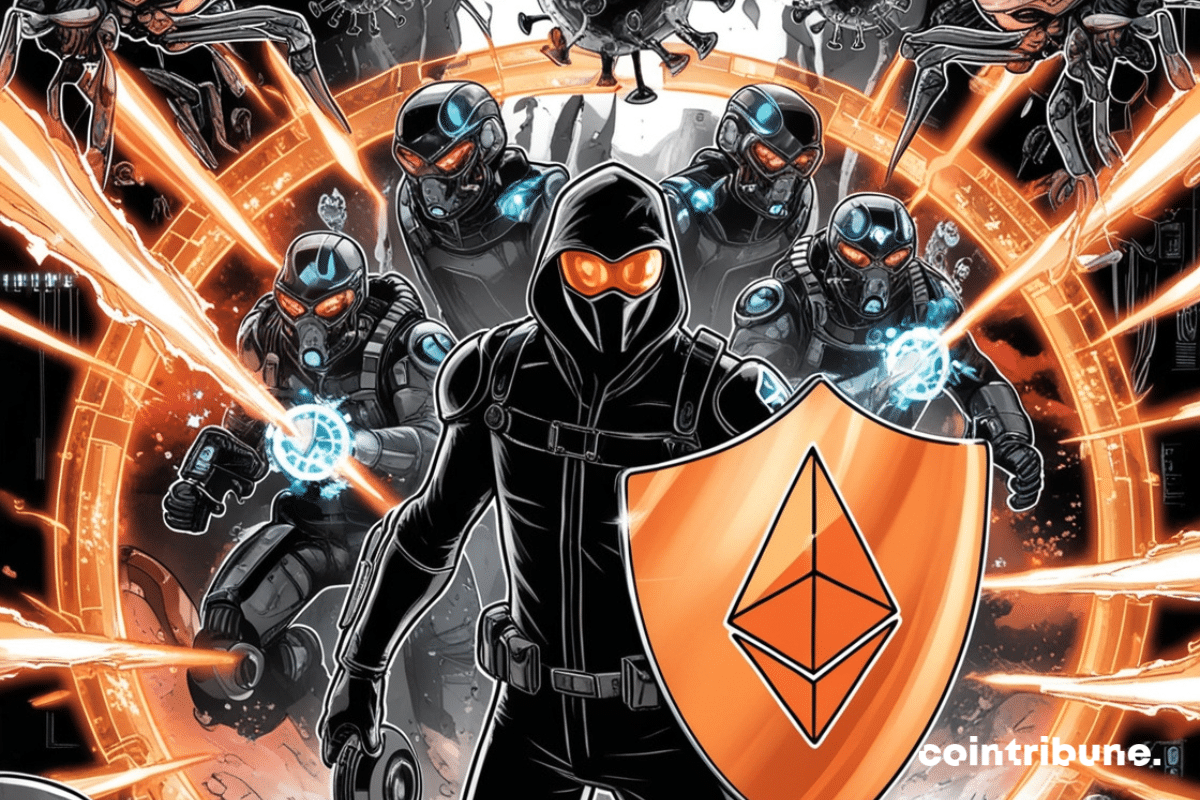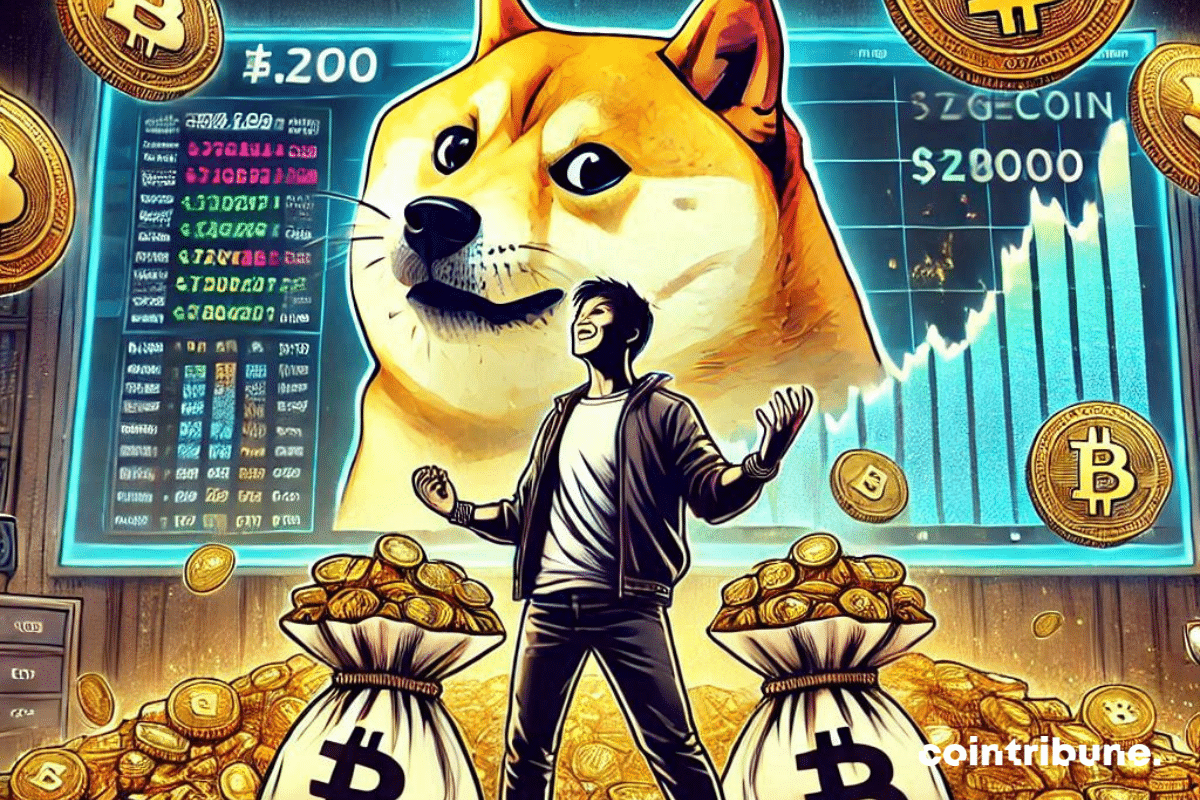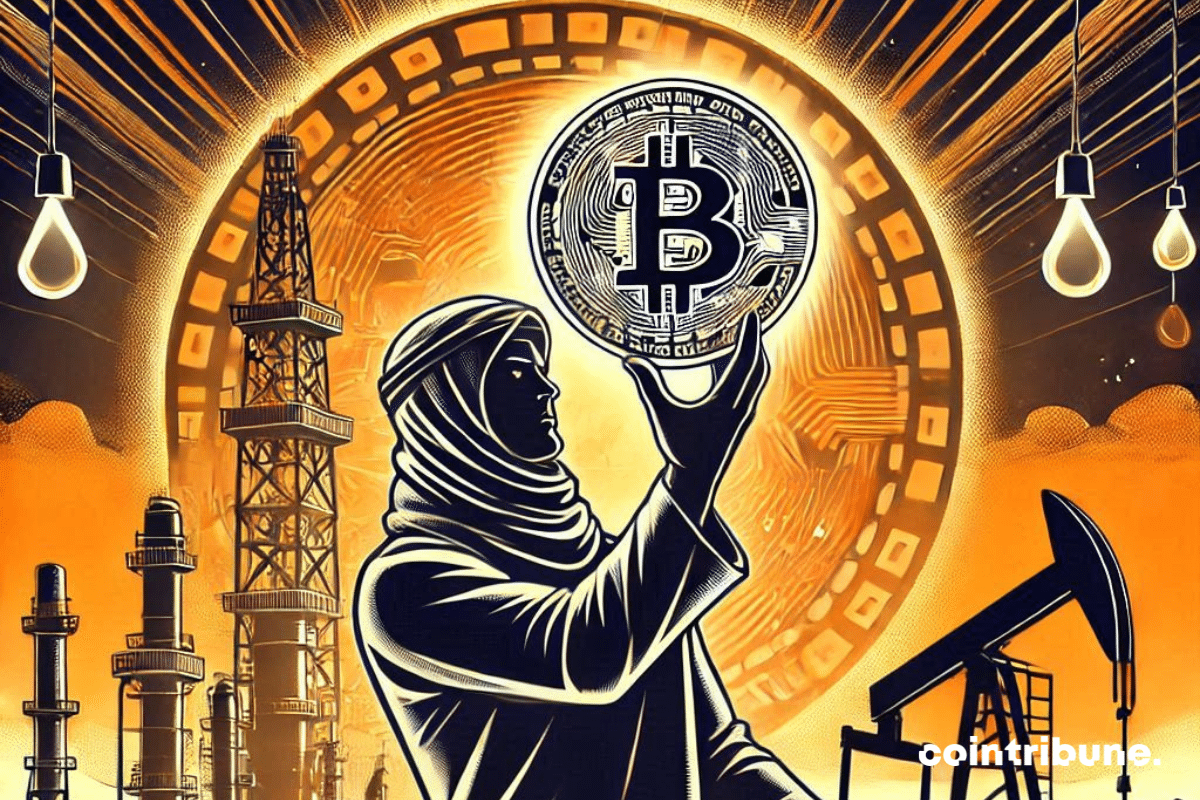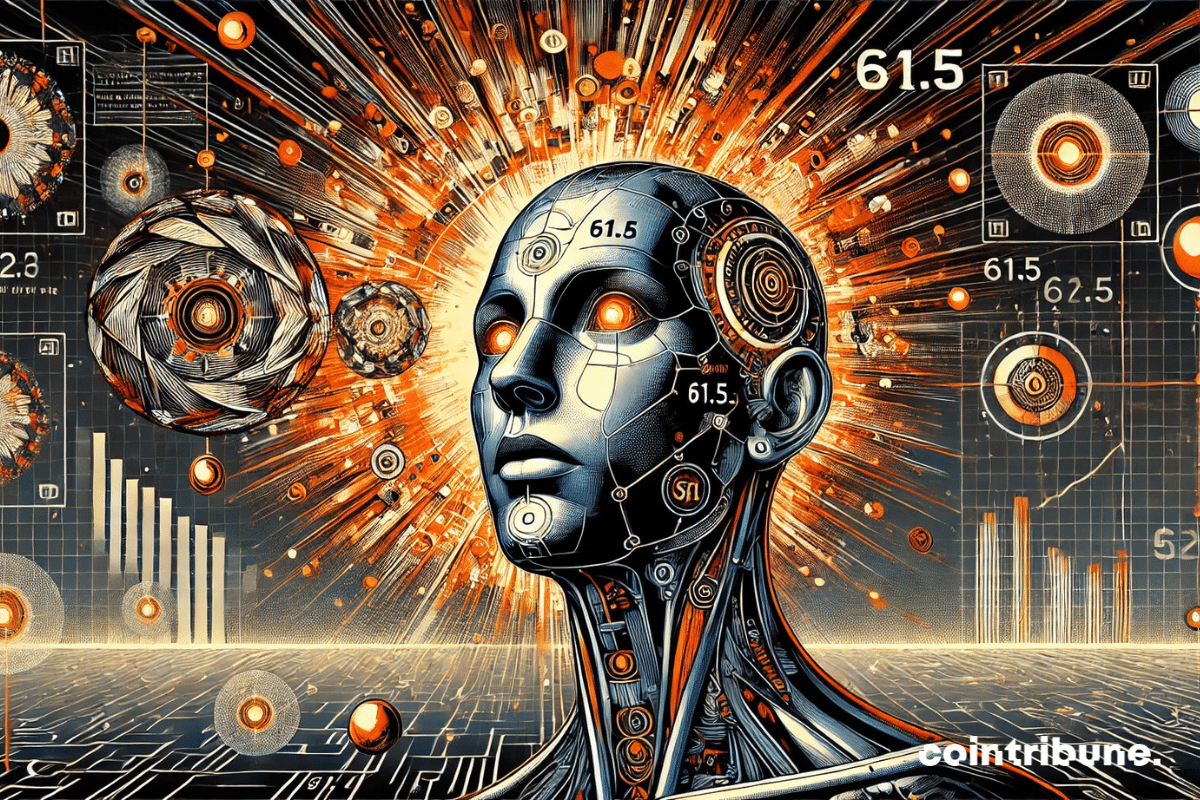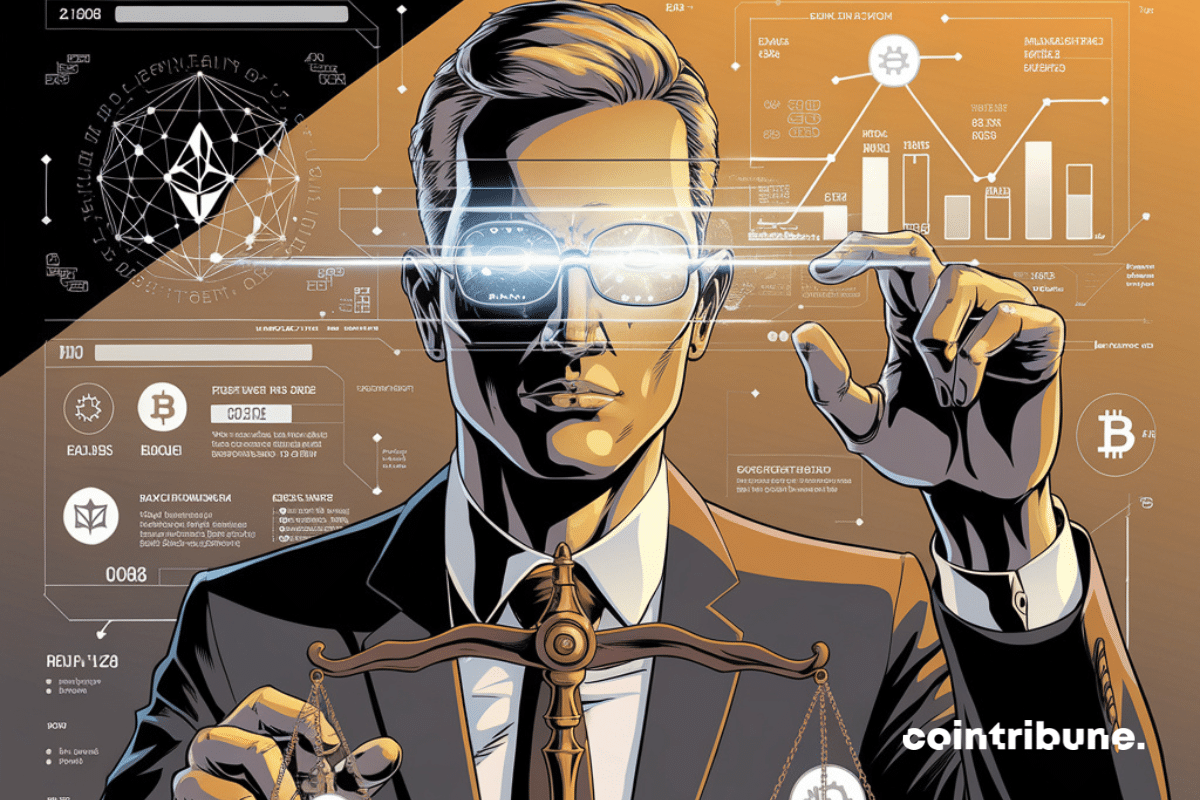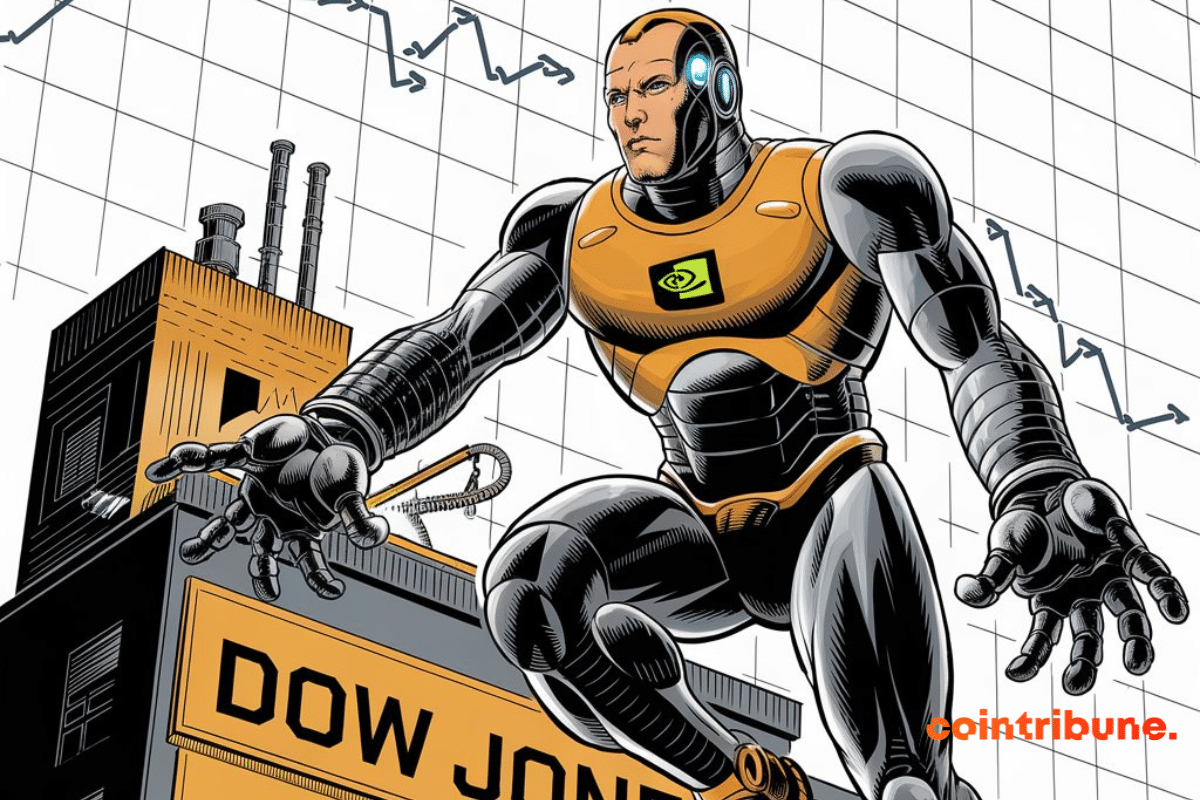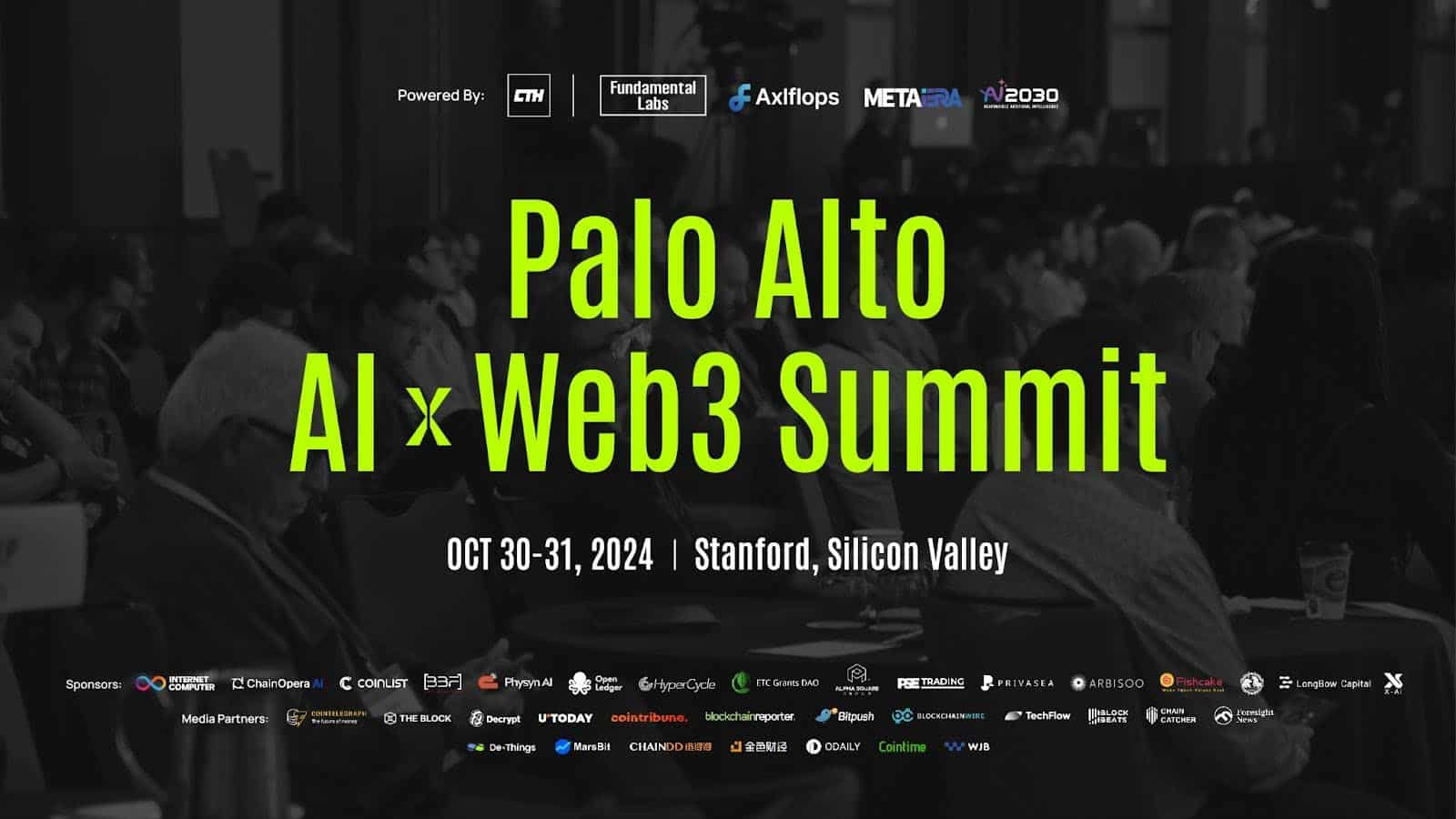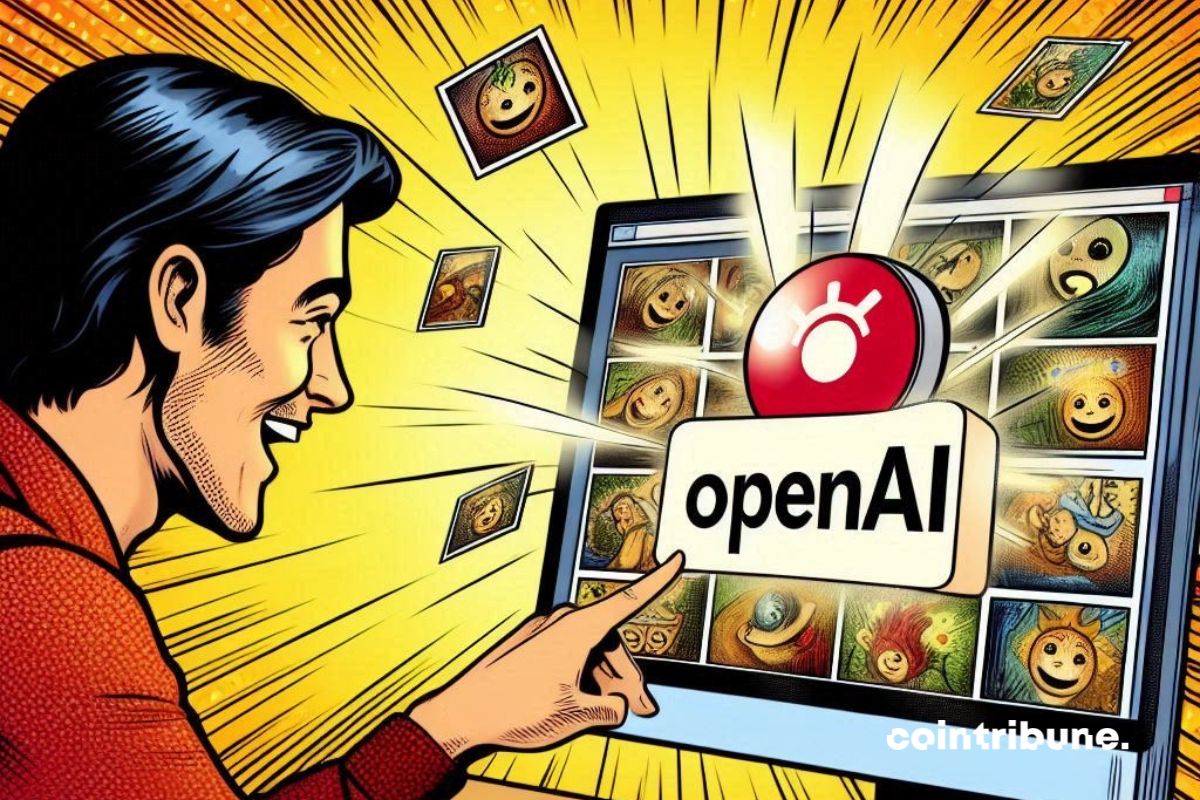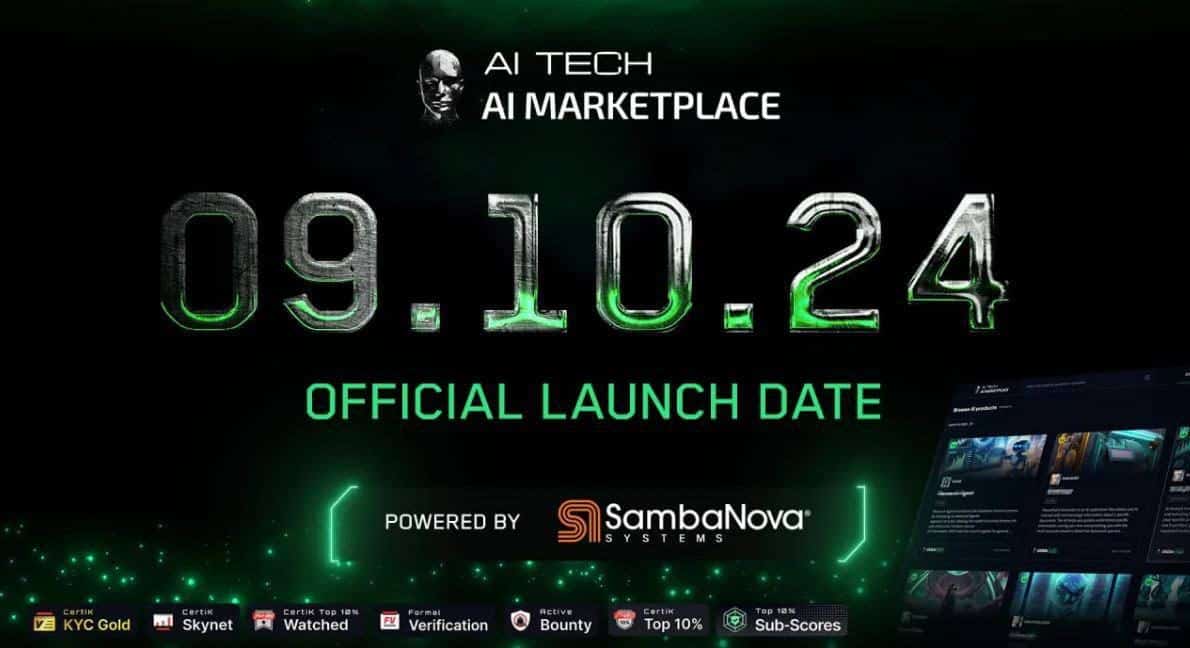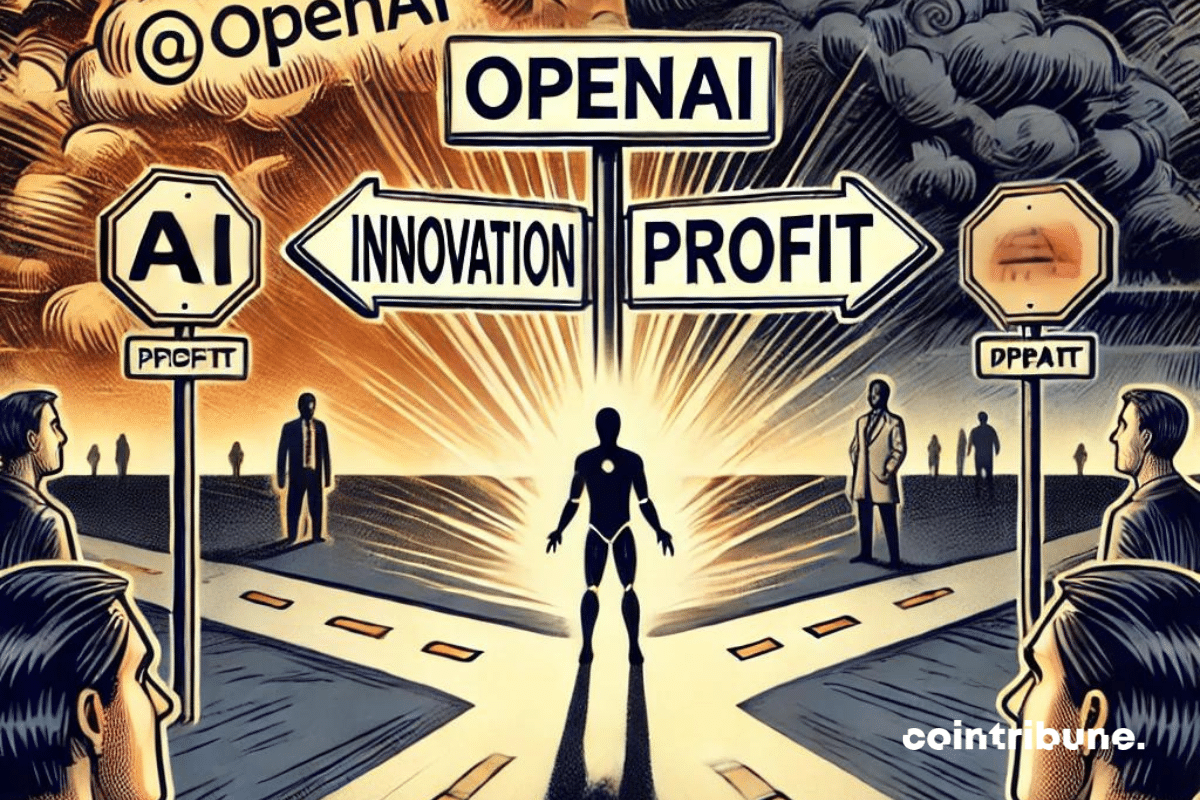The Chinese AI DeepSeek has caused an earthquake within American tech. The geopolitical power dynamics have just changed.
Theme Artificial Intelligence
When DeepSeek is siphoning the neurons from OpenAI, Microsoft cries foul, and the US Navy barricades its servers. The digital cold war is in full swing.
Nvidia stumbles, Bitcoin shudders. When 600 billion goes up in smoke, the flagship crypto feels the change in the wind. And if the golden future of BTC were to emerge from the ashes of tech?
The world of crypto, known for its excitement and technological advancements, is once again confronted with a wave of sophisticated scams. Currently, the rapid rise of DeepSeek AI, a Chinese artificial intelligence application that went viral after its launch on January 20, marks a turning point. This popularity, which has propelled the app to the top of the App Store downloads, has also attracted the interest of fraudsters. In just 24 hours, no fewer than 75 fraudulent tokens have been created, exploiting DeepSeek's notoriety to target unsuspecting investors. This phenomenon illustrates how quickly scammers adapt their methods to take advantage of emerging technological trends.
Sam Altman, the CEO of OpenAI, recently praised DeepSeek's R1 model, a Chinese startup specializing in artificial intelligence, calling it "impressive." This recognition comes after DeepSeek revealed that training its R1 model cost less than $6 million, a fraction of the cost of equivalent models in the United States. However, this development could be fatal to the crypto market.
The world of artificial intelligence is buzzing with the arrival of DeepSeek R1, a revolutionary open-source model developed in China. This bold project challenges the dominance of established leaders like OpenAI, thanks to remarkable technical performance and unprecedented accessibility. Indeed, unlike proprietary models, DeepSeek R1 relies on the complete openness of its code and reduces usage costs to a fraction of those offered by its competitors. As the boundary between closed innovation and open-source solutions blurs, this advancement raises many questions: does it mark a sustainable democratization of AI or a disruption of the economic balances in the sector?
Artificial intelligence is establishing itself as a driving force for transformation in fields as varied as health, security, and defense. Yesterday, the President of the United States, Donald Trump, took a historic step by announcing a massive investment plan of 500 billion dollars. This project, designed to place the United States at the forefront of global technological innovation, is based on a strategic alliance with OpenAI, Oracle, and SoftBank, three pillars of the industry. With this unprecedented initiative, Washington aims to consolidate its leadership amid increased international competition, with a view to paving the way for major technological advancements.
Semiconductors have become an essential pillar of the global economy and technological security. In this context, China announced an unprecedented investment of 37 billion euros to accelerate its technological autonomy, which has so far been hindered by the dominance of Europe and the United States. This strategic sector, embodied by players such as ASML, the world leader in photolithography equipment, is now at the heart of fierce competition. Beijing is not only looking to bridge its gap but to redefine the balance of power with the aim of achieving complete independence. This initiative could reshape the contours of global innovation and intensify tensions in an already high-pressure market.
While the American economy soars like a star, Europe gets lost in a maze of rules and bitter regrets.
Under the scorching sun of 2025, AI cryptos shine, but their reign is fragile. Memecoins, relics of the past, may be awaiting a return to the firmament.
The year 2024 will go down in history as a decisive milestone for Nvidia, an emblematic figure of technological innovation in the era of artificial intelligence. Thanks to visionary investments and strategic advances, the company has reached an unprecedented market capitalization of $3 trillion, consolidating its role as a global leader. This success largely relies on its chips, which equip leading global data centers, and on its CUDA ecosystem, favored by developers. However, this triumph comes with increasing challenges. The rise of ambitious competitors, such as AMD and Broadcom, intensifies the pressure. Moreover, key clients, including Google and Amazon, are actively exploring alternatives to reduce their reliance on Nvidia. These contrasting dynamics place the company at a strategic turning point, where the slightest misstep could redefine the balance of power in the market.
Crypto, AI, and hybrid worlds: Buterin, like a digital alchemist, presents us with a vision where blockchain and biotechnology intersect to ward off threats from another century.
Under the spotlight of speculation, memecoins attract and terrify. Solana leads the dance, Coinbase follows, while traders oscillate between golden dreams and cold sweats.
Tether is the crypto version of 2025: BTC for real life, private AI for discretion, and Rumble to dethrone YouTube. That’s all there is to it!
The sector of crypto related to artificial intelligence is experiencing rapid growth in 2024. After a chaotic period marked by high volatility and geopolitical challenges such as U.S. restrictions on AI chip exports to China, the market has regained new momentum. This spectacular recovery has resulted in a 208% growth over the year, propelling the total market capitalization of the sector to $61.5 billion. Several dynamics are at play behind this remarkable rebound. On one hand, the increasing adoption of blockchain solutions powered by artificial intelligence has bolstered the credibility of these technologies. On the other hand, the heightened demand for utility tokens that can support expanding ecosystems in areas such as gaming, entertainment, and decentralized services has solidified this trend.
When AI and crypto come together, it swings! Autonomous agents create millionaires and disrupt decentralized finance.
Nvidia in the Dow? It's tickling Wall Street! Yet, not so big after all in the kingdom of portfolios...
In a new demonstration of the significant impact of artificial intelligence on financial markets, NVIDIA has surpassed Apple to once again become the world's most valued company. This turnaround, while symbolic, illustrates the growing power of companies that rely on cutting-edge technologies such as AI and advanced graphics processors. While Apple is experiencing the effects of a lackluster quarter, NVIDIA continues to attract investors thanks to its strategic positioning and expansion into key sectors. But beyond the mere valuation figure, this dynamic sheds light on deeper trends within the global economy and technology.
At the occasion of the World Congress on Innovation and Technology 2024, in Armenia from October 5 to 7, Nvidia unveiled ambitious projects to democratize humanoid robots that incorporate advanced artificial intelligence. "Soon, these machines could live and work alongside us," said Rev Lebaredian, Nvidia's Vice President. This announcement echoes the rise of AI across all sectors of society. At the heart of this ambition, Nvidia envisions a revolution similar to that of smartphones, making all these robots that will imitate both human appearance and behavior accessible.
Palo Alto, CA, Oct. 28, 2024 – The Palo Alto AI X Web3 Summit, a two-day event running from October 30 to 31, 2024, is set to kick off at Stanford University. This premier gathering will bring together 50+ industry leaders and innovators to discuss the convergence…
Coinbase launches "Based Agent," an AI tool to simplify and automate crypto transactions, making blockchain more accessible.
Artificial intelligence (AI) is gradually reshaping the contours of modern medicine, but a breakthrough could forever change cancer diagnosis. Indeed, the CHIEF model, developed by Harvard Medical School, has just reached a historic milestone. Capable of detecting several types of cancers with 96% accuracy, it stands out as one of the most promising tools for improving early diagnosis and prognostic assessment. In the face of growing challenges in oncology, this model opens new perspectives for cancer research and treatment.
Discover how AI is helping the U.S. Treasury recover billions of dollars in fraud and protect public funds.
The rapid rise of artificial intelligence (AI) tokens is far from being just a passing trend in the crypto world. Fueled by the growth of machine learning technologies and the integration of AI across various sectors, these assets are capturing the attention of investors and redefining the crypto landscape. Over the past week, several AI tokens have seen their trading volumes skyrocket, reaching unprecedented levels, as revealed by a recent analysis from Phoenix Group.
Discover Canvas, the new AI interface of ChatGPT, which revolutionizes collaboration and project creation.
Generalized algorithmic surveillance in France! Enhanced security at the expense of individual freedoms?
In 2024, the financial sector must face increasingly complex compliance challenges. Institutions are juggling disparate processes that lead to high costs and security risks. However, the combination of blockchain and artificial intelligence (AI) offers an innovative solution to improve these processes. This article explores the main compliance challenges and how Wecan Group, with its Wecan Comply product, is transforming this landscape.
The future of AI is about to take a major leap forward with the launch of the AI Marketplace on October 9th. This game-changing platform, powered by SambaNova Systems, is set to revolutionize how we interact with AI technologies, making them accessible to businesses and developers alike.
A combination of global economic fears and speculation surrounding a potential bubble in the artificial intelligence (AI) sector is shaking Bitcoin, leading to a loss of investor confidence. Yesterday, September 30th, Bitcoin recorded a drop. This decline is merely a symptom of a deeper malaise affecting the entire crypto market. Amid fears of a global recession and speculation about tech bubbles, investors are watching every move with apprehension.
OpenAI initiates a historic new phase that redefines the future of Artificial Intelligence. Through its transformation into a for-profit entity, the company, once a pioneer in altruistic AI research, disrupts its founding model. This decision, which represents a profound break in OpenAI's history, occurs at a time when technologies related to Artificial General Intelligence (AGI) occupy a central place in scientific and political debates around the world.
